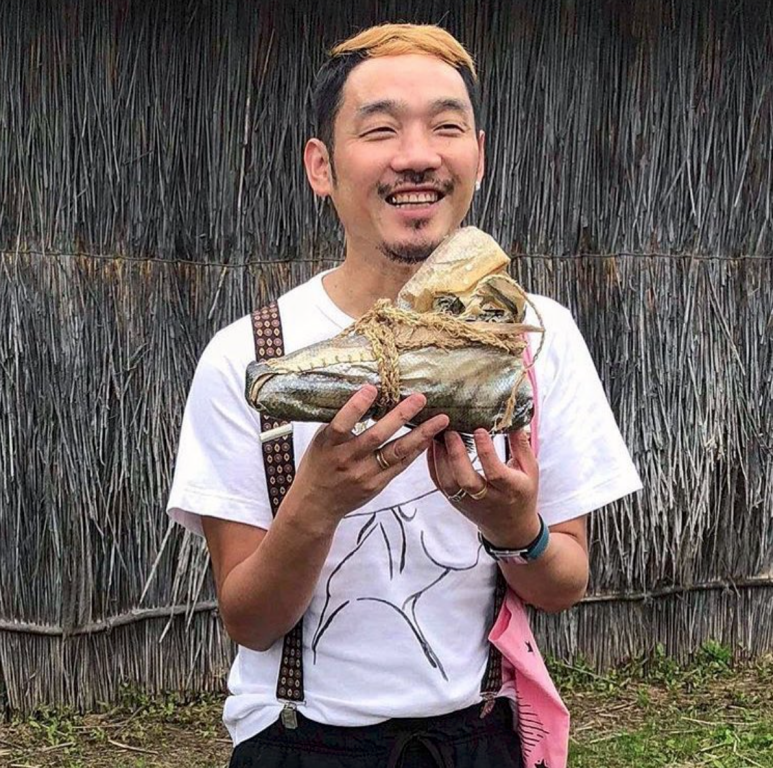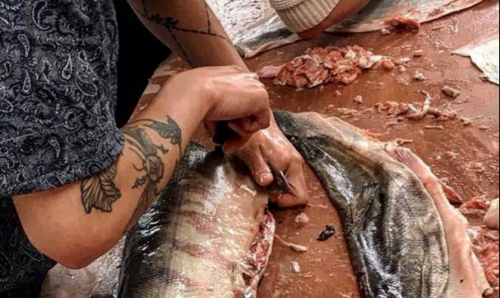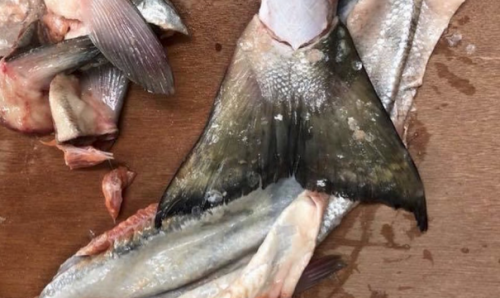
AINU FISHSKIN CRAFT WORKSHOP
People have worn clothes made from fish skin leather for the past 1,000 years with some of the earliest traces being found from the Ainu ethnic minority populations in Hokkaido, Japan. Ainu were traditionally fishermen, they fished for salmon on the open seas until the Meji government prohibited traditional fishing.
The workshop that took place at Nibutani Ainu Museum has looked closely how little Ainu Fish Leather craft heritage has been preserved and promoted and has sought to contribute to the academic debate of Hokkaido traditional crafts being recognised by the Japanese government. The workshop has sought to draw attention to the vital importance of salmon to the Ainu - not just as a food resource, but as a basis for their culture and a component of their identities and has specifically looked into the disappearing traditional Ainu Fish Leather craft, encouraging Nibutani local artisans on re-introducing fish skin used by their Ainu ancestors making a tool for community development.
The workshop was taught by a local fish skin craftsman to a group of Japanese and International higher education students to ensure the continuity and sustainability of Fish leather traditional skills, patterns and themes. The project was developed as a design practice exploring the traditional fish leather materials to create new uses of fish leather, examining the process and implications of design practice within local communities. The focus here was on using a raw material- fish skin- which a by-product of the fish industry and that for centuries has been used by the Ainu to produce their garments and accessories. The workshop has been an immersive experiential learning process, based on sustainability values, where the students have created an artefact- An Ainu salmon skin boot- to create a practical educational model of sustainability in action.
The workshop has sought to develop a teaching and learning experience most suited to Fashion Design Higher Education. The workshop was supported by the Nibutani Ainu Museum, and funded by the FRPAC, Foundation for Research and Promotion of Ainu Culture, The Japan Foundation Endowment Committee and The Great Britain Sasakawa Foundation.









. Photographer Elisa Palomino.png)




